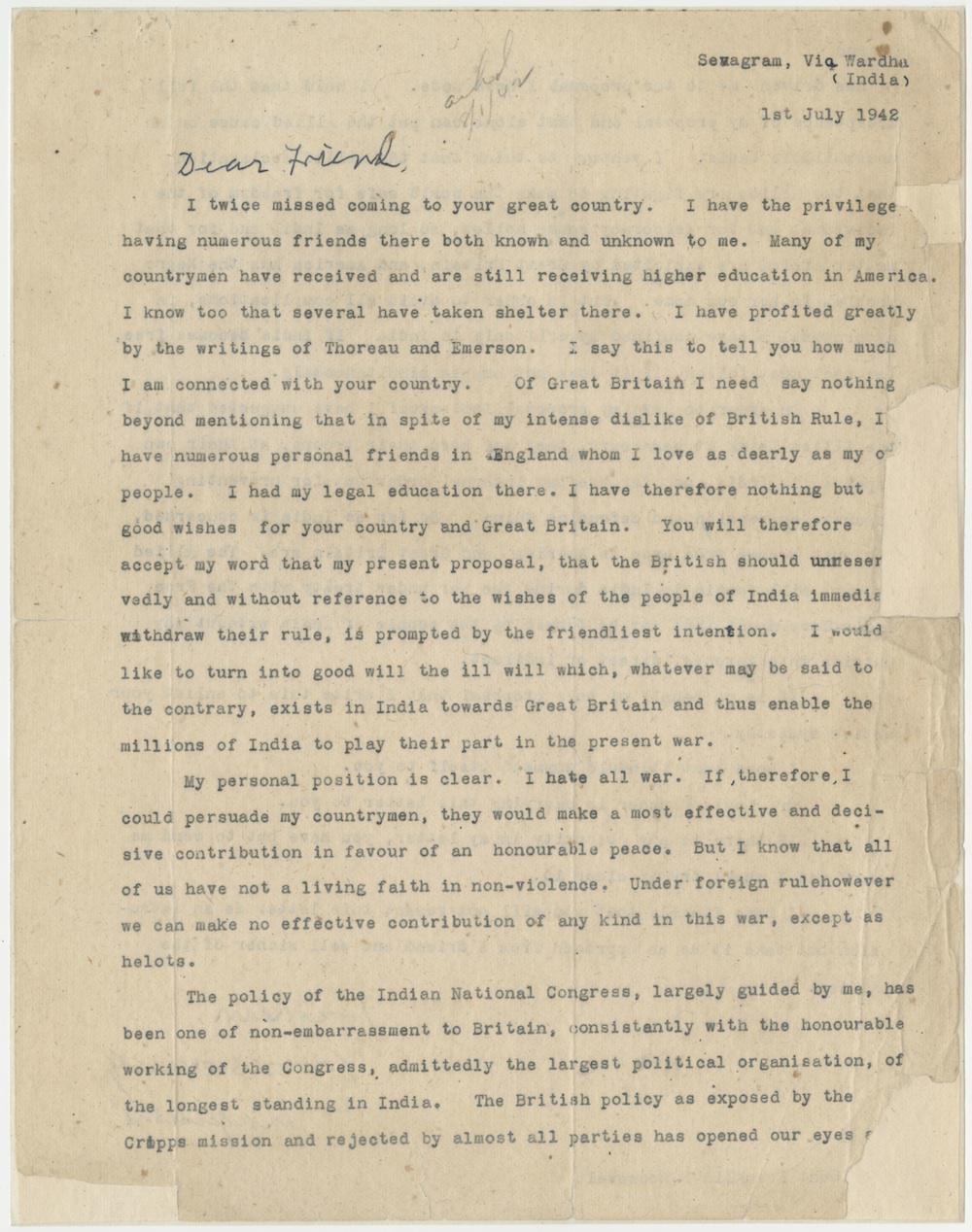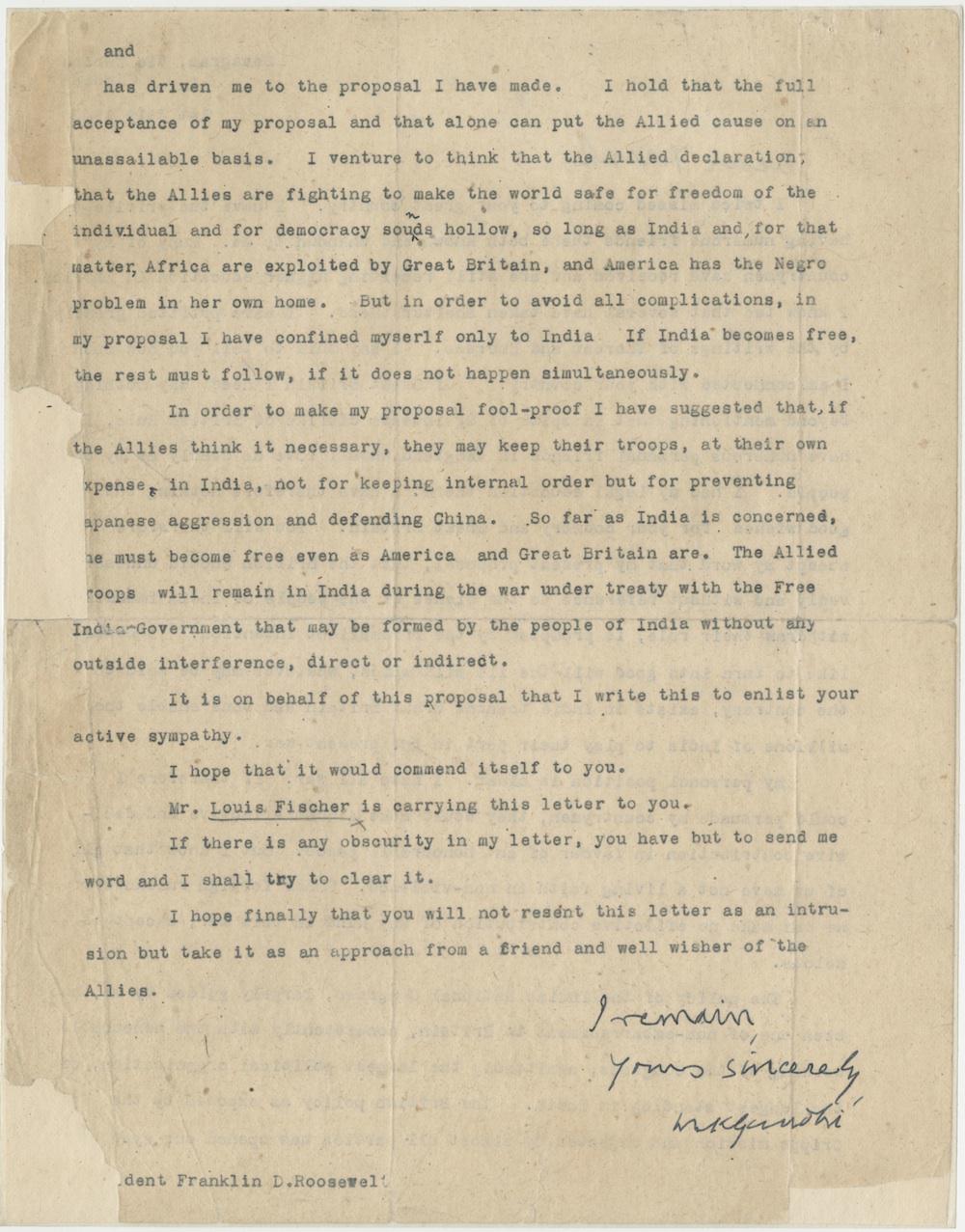The Vault is Slate’s history blog. Like us on Facebook, follow us on Twitter @slatevault, and find us on Tumblr. Find out more about what this space is all about here.
In July, 1942, Mahatma Gandhi wrote this letter to Franklin Roosevelt to state his position on Indian independence and involvement in World War II. Offering respect for the people of the United States and of Britain, Gandhi nonetheless told the President that India must be free, if the principles that the Allies were fighting for were true ones: “The full acceptance of my proposal and that alone can put the Allied cause on an unassailable basis.”
The Gandhi letter, conveyed to FDR by journalist and future Gandhi biographer Louis Fischer, arrived as negotiations over a possible shift to self-government proceeded in India. British diplomat Sir Richard Stafford Cripps had visited earlier in 1942, promising independence after the war in exchange for cooperation and service to the Allies while hostilities continued. The Indian National Congress rejected the proposal, and the negotiations collapsed. The month after sending this letter, Gandhi was to launch the nonviolent “Quit India” movement, for which he was to be jailed for most of the remainder of the war.
Within the limits of diplomacy, Roosevelt tried to urge Churchill to cede ground to the nationalists. Historian Auriol Weigold writes that the prime minister worried that American sympathies might shift to the Indian cause, and therefore orchestrated a publicity campaign to convince American public opinion that independence might have a negative effect on the Allied war effort.
In the end, over two and a half million Indian citizens, still under British governance, served in the Allied forces during the war. Independence, negotiated in earnest beginning in 1945, finally came in 1947.

National Archives.

National Archives.